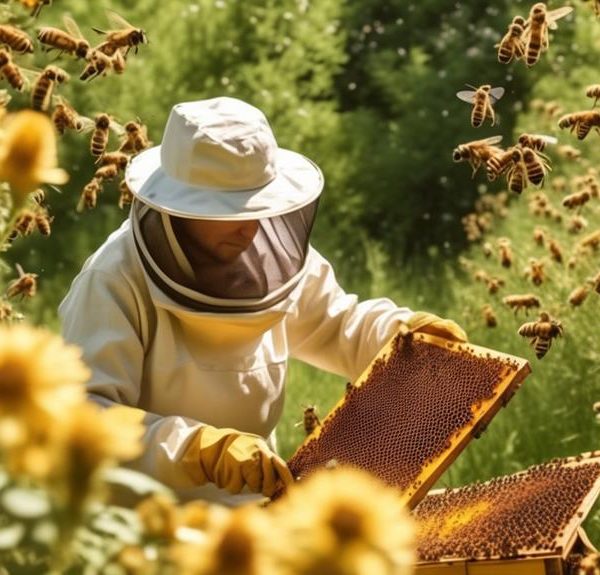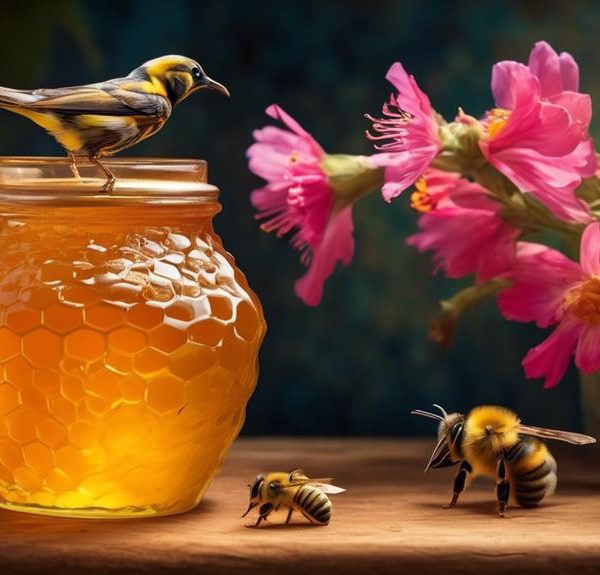Take a deep dive into the complex world of insect-made sweets and question if bees really are the sole honey makers.
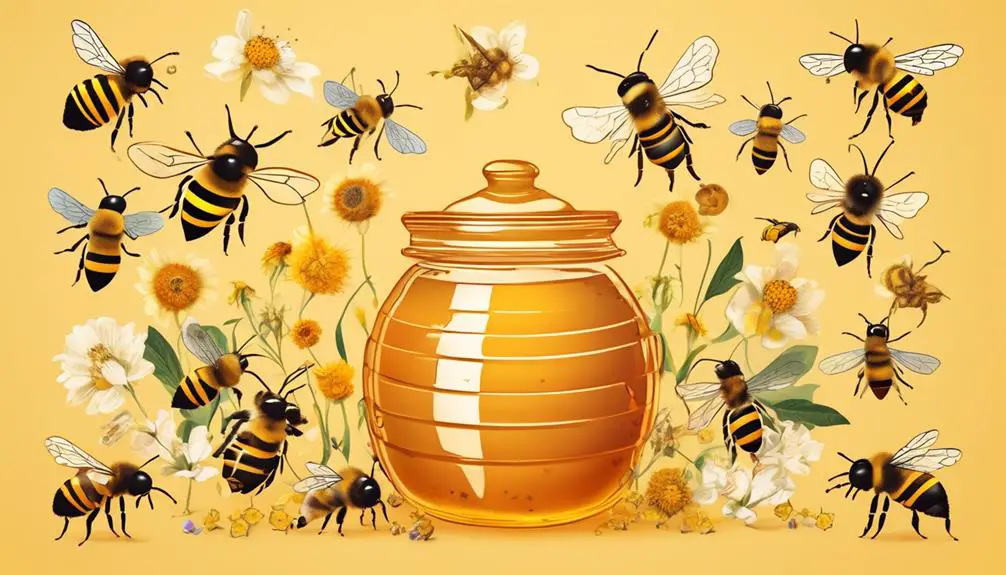
Are Bees the Only Insect That Makes Honey
You might have watched a bee, heavy with pollen, buzzing its way back to the hive to produce the honey we humans so enjoy. It's a common belief that bees are the only insects capable of making this sweet concoction.
But let's consider this: are bees truly the sole producers of this delectable treat? As you navigate through this fascinating topic, you might be surprised to uncover the intricate world of insect-made sweets, and the revelations might just change how you view your next spoonful of honey.
Key Takeaways
- Bees are not the only insects that produce honey-like substances.
- Insect-produced sweet substances vary in composition and nutritional value.
- Proper processing can make insect honey safe for consumption.
- The safety and quality of insect honey depend on the sourcing from reliable producers.
Understanding Bee-Made Honey
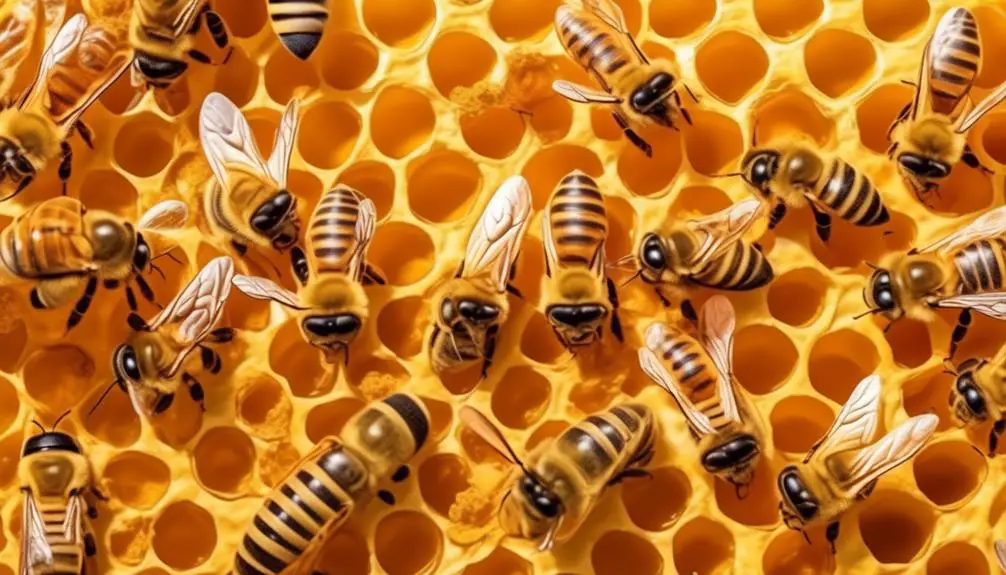
Often, you might find yourself wondering how bees, those small buzzing creatures, are able to produce honey, a sweet substance enjoyed by many. The process isn't as simple as you might think. It involves a series of intricate steps, all finely tuned by nature over millions of years.
First, worker bees collect nectar from blooming flowers using their long, tubular tongues. This nectar is stored in a special stomach called the honey stomach. Back at the hive, they pass the nectar to younger worker bees. These bees chew the nectar, breaking down complex sugars into simpler ones. This process is known as inversion.
Next, these bees partially digest the nectar, then regurgitate it into honeycomb cells. They then fan their wings to evaporate any remaining water in the nectar, leaving behind thick, gooey honey. The bees cap the cell with wax, preserving the honey for later use.
That's how those buzzing creatures produce the sweet delight you love. It's a complex process that's been perfected over millions of years, a testament to the dedicated teamwork and precision of the humble bee.
The Honey-Making Process
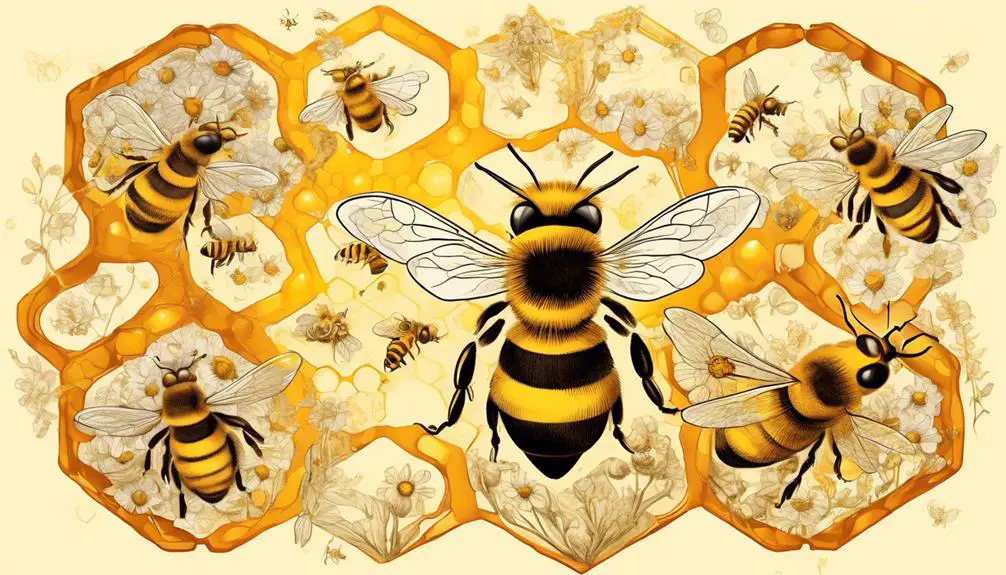
Let's delve into the intricacies of the honey-making process, a marvel of nature that showcases the remarkable abilities of these tiny insects. You might think it's simple, but in reality, it's a multi-step, complex process that requires teamwork and precision.
Firstly, forager bees collect nectar, a sweet liquid found in flowers. This nectar is then stored in their honey stomachs where enzymes break it down into simpler sugars. Upon returning to the hive, the forager bee regurgitates the nectar into the mouth of a house bee, who further breaks it down using more enzymes.
This pre-digested nectar is then deposited into the honeycomb cells. However, it's still too watery to be considered honey. So, the bees fan their wings to evaporate the excess water, thickening the nectar into a syrup-like consistency.
Once the honey is just right, the bees seal the cell with a wax cap, preserving it for later use. The bees' meticulousness ensures that the honey doesn't ferment or spoil, even after months. You see, bees aren't just honey producers, they're also chemists and preservers. Without them, we'd miss out on nature's sweetest gift.
Other Insects Producing Sweets
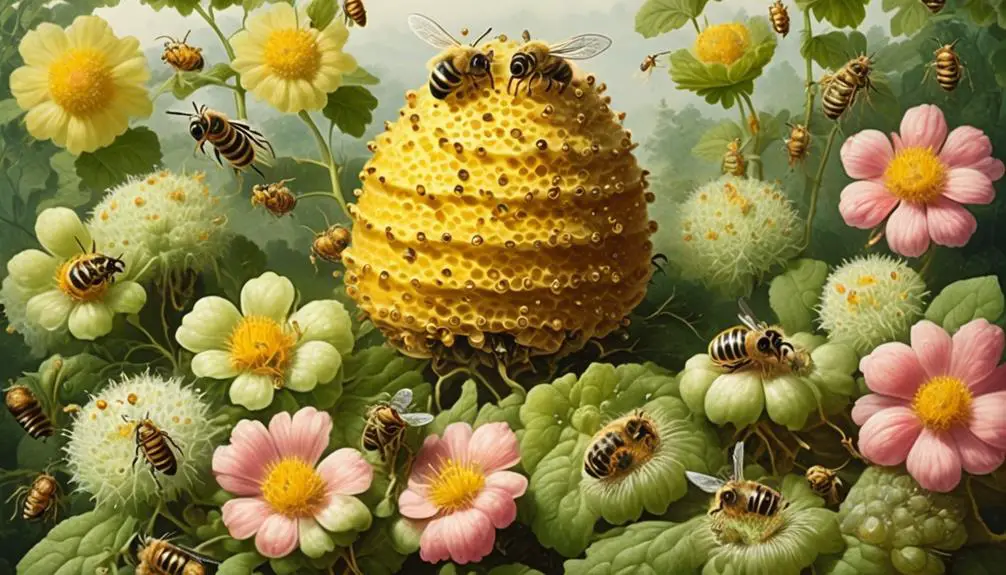
While bees are the most renowned sweet-makers in the insect kingdom, they're not the only ones with a knack for producing sugary substances. Other insects, such as aphids, scale insects, and certain types of ants, can also produce sweet substances.
Aphids, for example, secrete a sweet substance called honeydew. This substance is so sweet that other insects, like ants and bees, often collect it for their own use. Similarly, scale insects produce a sugary substance as a by-product of their feeding.
Ants, particularly the Mexican Honey Ant, have a unique way of producing sweets. They consume plant juices and then secrete a sweet substance from their abdomen, which is then used by the colony as a food source.
Below is a table highlighting these insects and their sweet production methods:
Insect | Sweet-Producing Method |
|---|---|
Aphids | Secrete honeydew a sweet substance |
Scale Insects | Produce a sugary substance as a by-product of feeding |
Mexican Honey Ants | Consume plant juices and secrete a sweet substance |
Comparing Bee Honey With Other Insect Products
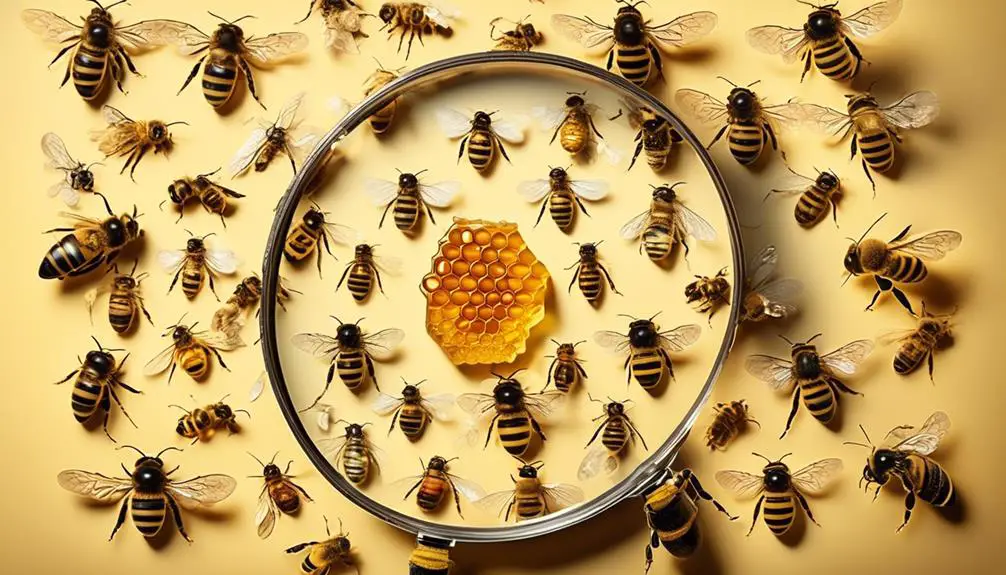
Despite the varied methods of sweet production in the insect world, it's essential to compare the nutritional value and taste of bee honey with other insect products to understand their distinct characteristics.
Bee honey, as you may know, is a rich source of antioxidants and contains plant compounds beneficial to your health. It's also low in vitamins and minerals but high in bioactive plant compounds and antioxidants. Its taste, often sweet and subtly floral, varies based on the type of flowers visited by the bees.
Contrastingly, aphid honeydew, another insect product, isn't as nutritionally rich. It's primarily composed of sugars, with trace amounts of amino acids, proteins, and minerals. Its taste is often described as less sweet, with a more watery consistency compared to bee honey.
Scale insects produce a similar product called 'lerp' which is high in sugars but lacks the antioxidants and bioactive compounds found in bee honey. Its flavor is typically described as bland.
Misconceptions About Insect Honey
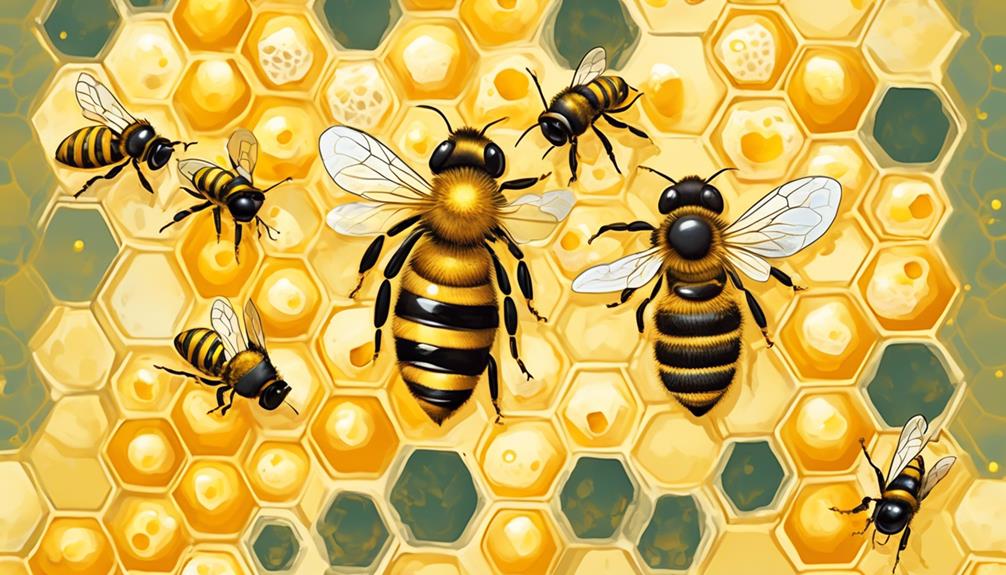
Surprisingly, there are several misconceptions about insect honey that often lead to misunderstandings about its nutritional value and potential health benefits.
The first misconception is that all insect honey is identical to bee honey. It's not. Different insects produce different types of honey, each with its unique composition and properties. For example, the honeydew honey produced by aphids has a different nutritional profile than the honey made by bees.
Another common misconception is that insect honey is less nutritious than bee honey. In truth, the nutritional value varies depending on the insect species, the plant source, and the processing method. Some insect honeys might even contain nutrients not found in bee honey.
There's also a misconception that insect honey is unsafe for human consumption. While it's true that certain insect honey can contain harmful substances, proper processing can reduce or eliminate these risks. You should always ensure that any insect honey you consume is sourced from reliable producers who adhere to high safety standards.
Conclusion
In conclusion, bees aren't the only insects that produce sweet substances. However, their product, honey, stands out for its unique composition and benefits.
Other insects, like aphids, produce honeydew, but the nutritional value and taste vary. It's essential to debunk the misconception that only bees produce 'honey' and understand the diverse insect world's contributions.
Ultimately, the honey you enjoy on your toast is a bee's exclusive gift to the world.

